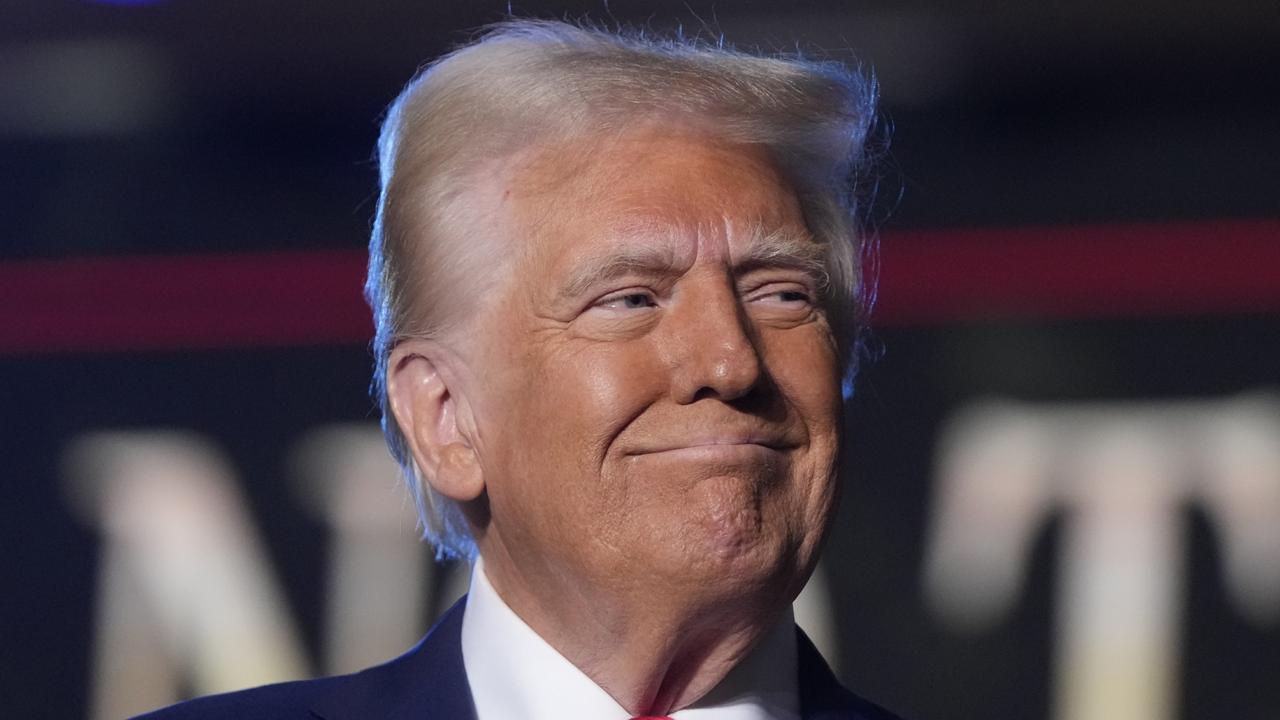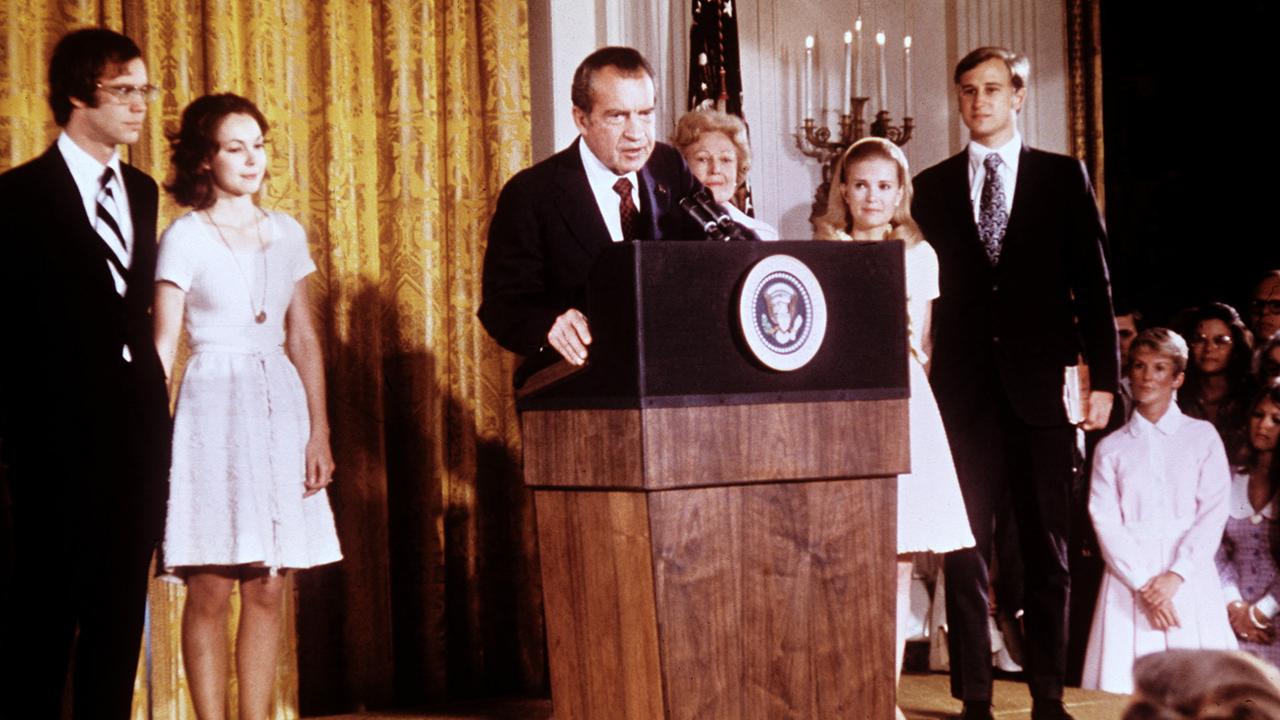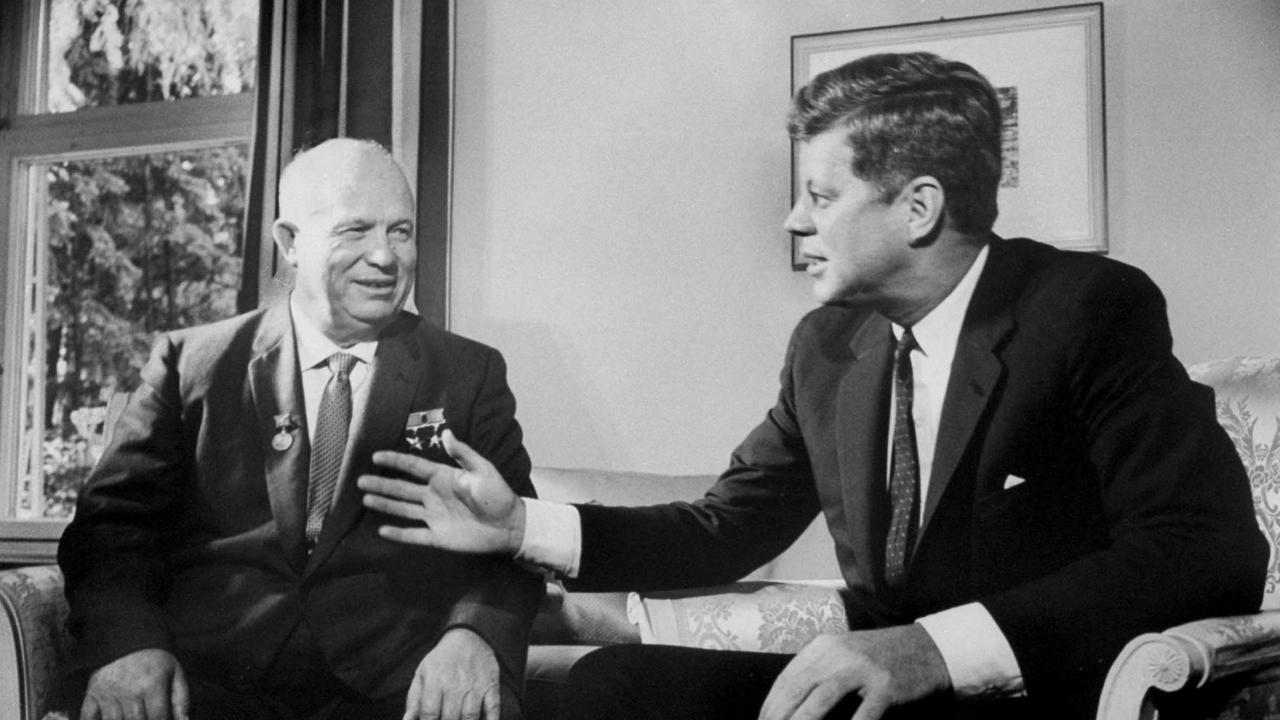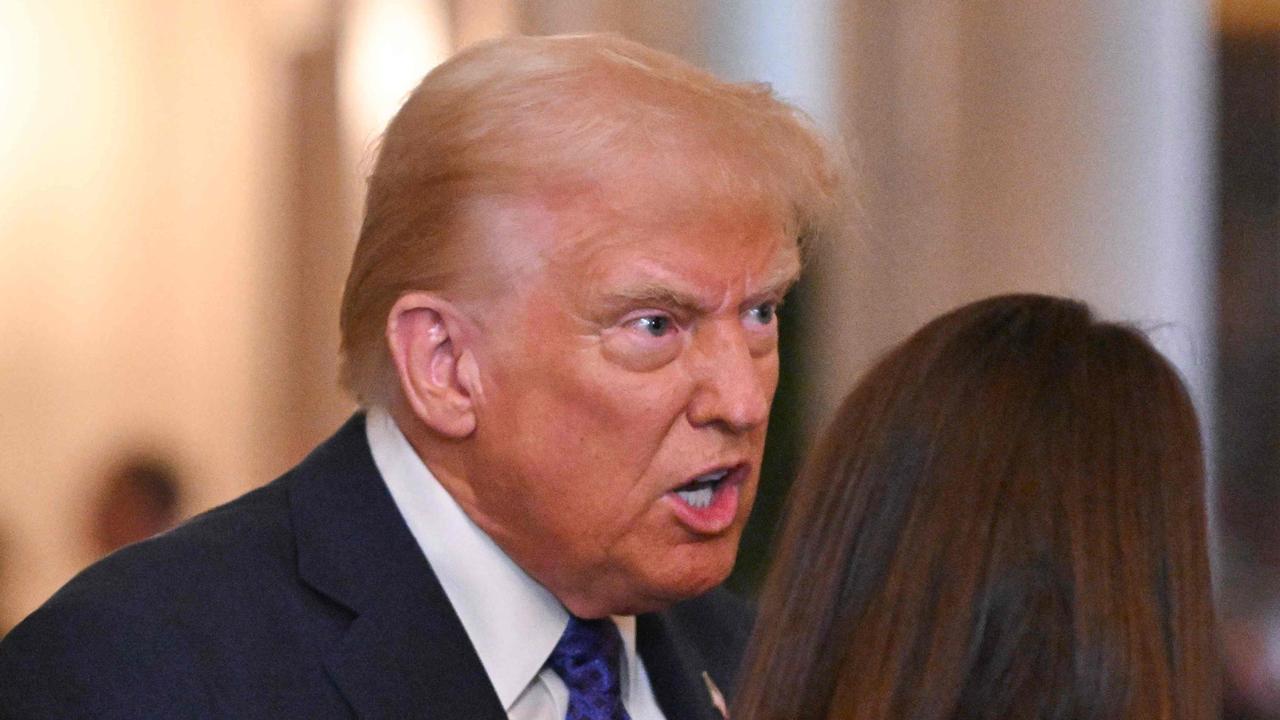‘Madman theory’: Donald Trump’s wild deliberate tactic exposed
A deliberate tactic of Donald Trump has been revealed – and it’s so unhinged that it just might work. Or spectacularly backfire.
World
Don't miss out on the headlines from World. Followed categories will be added to My News.
It’s so crazy that it just might work. Or spectacularly backfire.
It’s the “madman” theory of world politics.
In 2015, aspiring US presidential candidate Donald Trump stated about himself: “There’s a certain unpredictability about Trump that’s great”.
And his first term as 45th President demonstrated this to be his method, if not madness.
Chaos. Drama. Incendiary statements. Lies.
And after just one week back in office, every indication is that Mr Trump intends more of the same.
Despite one term as president and two highly-charged electoral campaigns, political analysts worldwide are still coming to grips with the Trump effect.
“That’s exactly how he likes it,” argues Pennsylvania State University associate professor Roseanne McManus in her Foreign Policy diplomatic journal essay.
He wants to buy Greenland.
He wants to invade Panama.
He wants to annex Canada.
He wants to impose steep tariffs on all economic competitors.
Is it bluster? Is it bravado? Is it insanity? Or is it a ploy?
“For decades, heads of state around the world have deployed what is known as madman theory: the idea that by acting in a highly volatile way, they can frighten opponents into conceding,” McManus explains.
It’s about generating – and exploiting – uncertainty.
“If others believe a madman could do just about anything if he does not get his way, the threat of escalation becomes more credible — making it logical to concede more to de-escalate,” adds Tufts University professor of international politics Daniel Drezner.

But there’s a paradox: For a chance at success, Mr Trump must be crazy.
“The problem is, if Trump is unable to convince anyone else that he really is a madman, then the only way he can prove it is to follow through on his most outlandish threats,” Professor Drezner adds.
“Maybe that would work, but it could also lead to a conflict spiralling out of control. Which sounds, to be perfectly honest, like a pretty crazy idea.”
Mad world
Does Mr Trump have a plan for dealing with his allies and adversaries?
Or are his erratic and unpredictable pronouncements all there is?
“We must as a nation be more unpredictable,” Mr Trump insisted during his 2016 election campaign.
Then, in 2018, Mr Trump described himself as being a “madman” when it came to crisis talks with North Korea.
Supporters point to this as an example of the ploy’s success.
The bellicose President threatened North Korean dictator Kim Jong-un with nuclear “fire and fury”.
“But he then became the first American president to meet a North Korean leader and declared that the two fell in love,” says McManus.
It was an approach he took with China, Covid-19, international trade and domestic politics.
It was a convincing act.

“Even several of Trump’s own top officials — including two secretaries of defence, two national security advisers, and a chairman of the Joint Chiefs of Staff — warned that Trump posed a clear and present danger to the United States’ interests abroad and its democracy at home,” global affairs analysts Jeffrey Friedman and Andrew Payne argue in Foreign Affairs.
From recent performances, we can expect more of the same.
Last year, when challenged about the threat of a Chinese invasion of Taiwan, Mr Trump retorted “[Xi Jinping] respects me and he knows I’m f***ing crazy”.
And Mr Trump’s then vice-presidential running mate James Vance embraced his volatility, stating that: “Trump is, as his detractors and his supporters would say, unpredictable. I am 100 per cent certain that unpredictability redounded to the benefit of the United States”.
But is his unpredictability now predictable?
“Trump’s past track record has made him more predictable to a host of foreign leaders who had to deal with him the first time around,” Professor Drezner points out.
“As it turns out, the first rule of the madman theory is that you do not talk about employing the madman theory. Expecting Trump to stay silent on such matters, however, is a fool’s errand.”

Madman philosophy
It’s a Machiavellian notion.
The notorious political philosopher Niccolo Machiavelli stated in 1517 that “at times it is a very wise thing to simulate madness”.
Madness can be seen a kind of strength – such as in Viking “Berzerker” warriors.
“When voters perceive candidates as tougher, they routinely rate them as being more fit to serve as commander in chief – even when voters disagree with candidates’ stances on specific foreign policy issues,” Friedman and Payne argue in Foreign Affairs.
“Projecting strength with hawkish rhetoric often comes at the cost of making presidential candidates seem reckless.”
“Madmen” Adolf Hitler and Benito Mussolini met with degrees of success – before ultimately losing World War II.
“(Hitler) managed to convince some of his British interlocutors that he was an extremist only on the issue of establishing a greater Germany,” writes McManus.
“Partially as a result, the British agreed to let him annex the part of Czechoslovakia populated by ethnic Germans rather than start a war. The rest is history.”
Their method was later exploited by Soviet Premier Nikita Khrushchev in the 1950s and US President Richard Nixon in the 1960s.
“Khrushchev threatened to use nuclear weapons and often seemed to lose control of his emotions when meeting Western officials — yelling, gesturing, and turning red in the face,” says McManus.

“Yet he was unable to compel the United States to retreat.”
Mr Nixon also embraced the tactic.
“According to his staffer HR Haldeman, Nixon coined the term ‘madman theory’, explaining that he wanted the North Vietnamese to believe he was capable of doing anything to bring the Vietnam War to an end — up to and including the use of nuclear weapons,” explains Professor Drezner.
So why the lack of success?
“First, the target has to believe that the other actor will carry out their threats, no matter how costly they are,” Drezner adds.
“Second, the target must also believe that the threatening actor will cease and desist from any coercion once an agreement has been reached.
“Acting like a madman might make the first kind of commitment more plausible, but it makes the second kind of commitment less plausible. Or, to put it more plainly: What is the likelihood that any foreign-policy leader will believe Trump when he gives his word about anything?”

Devil’s gambit
“A lot of this is bombast and bluster,” Brookings Institution Dan Hamilton told US media. “It’s also a tried and true tactic of Donald Trump — to sort of disorient your negotiating partner, put them on the back foot because you want to get a better deal for the real goals that you have.”
Analysts agree such a madman strategy can work.
Sometimes.
“The gambit benefits leaders who are deemed mad because of their extreme preferences rather than their extreme tactics, as well as leaders who are deemed to be mad about a particular situation rather than madness being inherent in their character,” explains Professor Drezner.
And it depends upon who is most vulnerable to such bluster.
“Trump’s madman schtick worked better with US allies than adversaries,” Drezner notes.
“The former group of countries, rattled by his threats to withdraw from longstanding alliances and trade treaties, at least made some public displays of fealty. Trump, however, was too busy trying to ingratiate himself with the autocratic rulers of China and Russia to act crazy in front of them.”
And who would trust any deal made with a madman?

“Leaders with a reputation for unpredictability — or who encourage the perception that they might do almost anything, regardless of the consequences — often struggle to make credible guarantees,” explains McManus.
“So do leaders whose notoriety is based on abnormal or distorted preferences, such as ones associated with fanaticism or extremism.”
And can a madman maintain an air of credibility?
“Trump might be able to succeed if he can portray himself as unpredictable and unrestrained without seeming unhinged. But if Trump comes off as hopelessly irrational, he is unlikely to get what he seeks,” McManus adds.
But Mr Trump appears determined to give the tactic yet another go.
“What is worrisome is that this time around, he might think he can pull it off even when the rest of the world does not,” concludes Professor Drezner.
“Trump’s improbable journey from convicted felon to second-term president could convince him to take even more risks. As one Trump adviser told Politico in November, ‘Look, he survived two assassination attempts, he’s been indicted how many times — he really is at this moment feeling kind of invincible and sort of emboldened in a way that he never has before’.”
Jamie Seidel is a freelance writer | @jamieseidel.bsky.social
More Coverage
Originally published as ‘Madman theory’: Donald Trump’s wild deliberate tactic exposed









